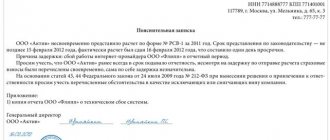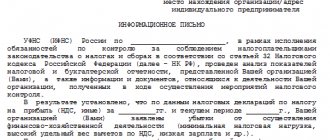Who is called and why?
Tax authorities can exercise the above right in relation to:
- taxpayers;
- fee payers;
- tax agents.
They are called to the tax office to give explanations on:
- completeness and timeliness of payment (withholding plus transfer) by them of certain mandatory payments;
- a tax audit, say, to find out the position of the person being audited regarding the violations identified by the audit;
- in other situations that relate to the implementation of fiscal legislation. For example, if there are facts and circumstances that indicate that the taxpayer received an unjustified benefit.
When can they be called to the Federal Tax Service?
In the vast majority of cases, “invitations” from the Tax Service are received during an on-site or desk tax audit. Inspectors try to adhere to these periods, because when filing a claim in court against the company being inspected, the Federal Tax Service has a greater chance of winning the case
Everything is explained by the presence of “fresh” evidence of the guilt of the business entity, if any is found. By the way, let’s say that going to court by the Tax Service during an audit is a very common practice, which the company’s management should remember
How the call happens
The taxpayer is called to provide explanations on the basis of a notification. The recipient receives it in one of the following ways:
- by registered mail;
- in electronic form via telecommunication channels;
- in person (to the representative) against receipt.
When using the electronic version, the taxpayer, according to clause 5.1 of Art. 23 The Tax Code is obliged to generate and send to the tax authorities an electronic receipt of receipt of the notification (or, in case of technical failures, inform about the refusal to accept). This must be done within 6 working days after the Federal Tax Service sent a notice of summons to the taxpayer. Otherwise, 10 working days after the expiration of the specified period, tax collectors under clause 3 of Art. 76 Tax Codes can initiate the suspension of transactions on bank accounts.
Unpleasant dialogue - unpleasant consequences
The Tax Service does not have the powers of the Ministry of Internal Affairs, which means that even the most disastrous negotiations will not lead the situation to tragic events. However, employees of the Federal Tax Service have a wide range of tools to tarnish the company’s reputation to the utmost.
Firstly, the companies you work with will become aware of your dishonesty. They will be sent corresponding letters, the content of which boils down to the fact that you are an unreliable organization and an unscrupulous taxpayer
For some, such notifications are just a “piece of paper”; however, these companies may not receive a VAT deduction when working with you, which will already hit their pockets and reputation. Moreover, if the Tax Service can prove that the director is a nominee, he will be required to replace him
Ignoring the requirements of the Federal Tax Service in this case is useless - over time this will become known to the public, because The data will be entered into the Unified State Register of Legal Entities. So, as of November 2021, about 18,000 (!) entries “about non-compliance” were entered into the Register
What is a notice of summoning a taxpayer to give explanations?
The indicated notice of summons of the taxpayer has a written form, which is established by Appendix No. 2 to the Order of the Federal Tax Service of Russia dated 05/08/2015 No. ММВ-7-2 / [email protected] This is the form according to KND 1165009, which includes the following information:
- Identification data of the person for whom clarification is required.
- Name and number of the document.
- Its date.
- Name of the fiscal authority.
- Legal justification for the call (clause 4, clause 1, article 31 of the Tax Code).
- Address and room number where you need to appear.
- Date and time or visiting days and hours when this needs to be done.
- Detailed description of the reasons for the call.
- Signature of the performer, plus his position, full name and name of the authority.
- Contact phone number.
- Information about who received the document.
It will be possible at the end of the article.
Since the notice does not contain information about who exactly should appear and give explanations, in the case of an organization, both its head and a representative by proxy can give them. Thus, the company can only refer its lawyer or accountant to the tax authorities.
What questions might they ask?
In order to deduce, Tax officers ask seemingly simple questions that a “real” director and chief accountant can easily answer. Here is a short list of them:
- Who signed and submitted documents for registration of a legal entity?
- Where is the company where you are a manager located?
- Who are the company's main suppliers and customers?
- How and when did you find your counterparties?
- What measures does your company take to check counterparties?
- How is the sale of goods (provision of services) carried out?
- At what address are the goods stored and how are they delivered to customers?
- Do you sign the financial statements yourself or does someone else do it?
- Who in your company draws up employment contracts?
- What are your job responsibilities?
Having prepared for these questions, the general director and chief accountant can agree on answers to them, so as not to give employees of the Federal Tax Service another reason to convict your organization of some criminal activity
You can adopt the practice of attending a tax audit with a chief accountant and lawyer. In this case, the general director has the right, during the dialogue, to agree on the most acceptable wording of answers to the questions posed
With all this, inspectors still do not lose interest in finding incriminating facts in your business activities.
A popular method of obtaining the “necessary” (incorrect and mutually exclusive) answers to the questions posed is the method of obfuscation. Inspectors may ask essentially the same question many times in different formulations. In dialogue with nominee directors, this technique works like a charm, which is not surprising
When a request comes from the tax office for clarification
A letter from the tax office requesting clarification may come in the following cases:
- contradictions and errors were found in the tax return;
- the company meets one (several) risk criteria that fiscal officers use when planning on-site inspections.
A complete list of such criteria is given in the Order of the Federal Tax Service of Russia dated May 30, 2007 No. MM-3-06/ [email protected] For example, the following are present there:
- the taxpayer's fiscal burden is below its average level in a particular industry;
- during several tax periods losses are reflected in accounting or tax reporting;
- reporting contains significant amounts of tax deductions for a certain time;
- expenses for the sale of goods (works, services) grow faster than income.
Preparing to testify
In the summons, inspectors must indicate the purpose of the call. This will allow you to evaluate possible options for the course of the conversation and predict the questions asked. Before coming for an interrogation, try to call the tax inspector and clarify the purpose of the interrogation, what specific transactions they are interested in, and what counterparties. The more information you get in advance, the easier the interrogation will be.
However, just a rough understanding of the structure of the dialogue is not enough. We need documents. It is advisable to confirm each phrase spoken. Such actions will protect you from calling again. They will not allow the inspector to interpret the witness's testimony in two ways.
Sometimes the lack of confirmation of the witness’s words even led to suspicions of fictitious document flow. This complicates the future life of a businessman. Tax authorities may order an on-site audit based on such suspicions. There is nothing good about her.
What is this requirement?
This is a document established by Appendix No. 1 to the Order of the Federal Tax Service of Russia dated 05/08/2015 No. ММВ-7-2/ [email protected] , forms according to KND 1165050. Structurally, it is close to the notification discussed above, but there are the following differences:
- In the name.
- In legal justification (Article 25.14, or 105.29 Tax Code).
- Within the period within which explanations must be provided.
The document will be available at the end of the article.
Tips for structuring a conversation during interrogation
People who are often called in for questioning by the tax office as a witness gave some advice regarding the rules for constructing a conversation. Recommendations include:
- answer rules;
- access to documents;
- correct use of rights;
- working with the protocol.
You only need to answer the questions asked by the inspector. The shorter the phrases, the better. If the question has multiple answers, ask the surveyor to break the question down or rephrase it. If necessary, the witness has the right to ask the department employee a clarifying question. It is better to avoid value judgments and speculation. They won't be of any use.
The phrases “I don’t remember”, “I don’t know” and similar ones will have to be excluded from the vocabulary during the interrogation. This advice will be especially useful to company directors. Ignorance of the main issues of the company’s work is a sign of fictitious management. In the future, this may force department employees to increase interest in the organization. Problems are guaranteed.
Don't be shy about using documents. The more facts confirming the words the witness offers, the fewer questions the Federal Tax Service employees will have in the future. The ideal case is confirmation of each replica. The tax office values authenticity. It can only be confirmed by concrete evidence.
The point of correct use of one’s own rights concerns a reference to Article 51 of the Constitution of the Russian Federation. This issue was discussed in more detail above. A short summary is this. A witness may not testify to:
- myself;
- immediate family.
The tax inspector’s interest in the company, employees or contractors is legitimate. Failure to testify will result in penalties.
During the conversation, the department draws up an interrogation protocol. After the conversation ends, the witness must sign the document. However, the document must be read before approval. If any inaccuracies are found, the witness may ask the inspector to correct the protocol or write a new one.
The signature must be placed only in the places indicated by the inspector himself. Under no circumstances should you sign on a blank sheet or form. In the future it may be used for personal gain.
You need to take a copy of the protocol, endorsed by the tax officer. She will confirm the fact of the conversation. Moreover, the inspector is obliged to give the witness a copy of the interrogation protocol (clause 6 of Article 90 of the Tax Code of the Russian Federation). The material may be used in court in the future.
Tax interrogation - typical mistakes
People who come for interrogation for the first time make typical mistakes. Such flaws can lead to negative consequences:
- Answer all questions with “I don’t remember”, “I forgot”, “I need to look in the notes”, etc. You need to understand that tax authorities perceive such answers as “I haven’t figured out what to say yet.” Such behavior of the interrogated may delay the interrogation. Other problems are also likely. For example, blocking company accounts, calling a commission to legalize the tax base, or on-site inspection.
- You need to answer only on the facts and substance. You cannot invent or share knowingly false information. This will cause additional problems in the future. The fact of deception will be revealed and will entail monetary fines. At the same time, the level of confidence in the witness’s words will decrease. The result is repeated interrogations and possible inspections of the company.
- Sample signatures cannot be submitted. Interrogation does not imply the seizure of documents of this type. The tax office knows this fact, but often likes to “ignore it.”
- If employees of the Federal Tax Service propose to sign a paragraph about the consequences of giving false testimony, then you must first ask them to talk about the measures presented. Otherwise, you can write “not familiar.”
- If you disagree with what the inspector wrote in the interrogation protocol, inform him about it; if he refuses to correct it, make a note in the protocol “my words were recorded incorrectly, the information is distorted.”
It is impossible to take into account all situations. Above are only the most typical mistakes made by witnesses during interrogation.
Important Tips
A person always has the right to stop the conversation and ask to reschedule it for another day. To do this, you can indicate poor health. Sometimes inspectors accommodate the witness and agree to his request. There are also refusals. In such a development of events, you need to ask that the presented fact be reflected in the protocol.
The tax authorities can use the interrogation protocol in court. However, if necessary, the testimony can be challenged. This is possible in cases of absence:
- witness signatures;
- information about the location of the conversation;
- signatures in the section on information about giving deliberately false testimony;
- information about the inspector.
Previously, in the courts, any formal inaccuracy was taken into account and the value of the interrogation was annulled. Later this practice was abandoned. Representatives of Themis point out the need to build a defense based on fact, and not to seek formal disposal of documents.
Before clarifying the subject of the conversation, the witness (company employee, director) can contact the counterparty and agree on answers to the most likely questions. From time to time, tax inspectors call for questioning, finding out details of long-past events. It is impossible to remember everything. Therefore, you can agree on answers with other people in advance.
What to do after receiving a request
If the reason for the requirement was errors and inaccuracies in fiscal data and calculations, the Federal Tax Service must send copies of documents on the activities of your company or partners (if necessary) for the period specified in the requirement, plus a covering letter indicating the number of its sheets and numbering (when they are some). Copies of documents are bound and certified with the signature of the head and the seal of the organization.
If the requirement is caused by certain risk criteria, the company’s work needs to be adjusted. To do this, you can conduct a financial analysis, check your partners and business patterns. If there are no positive changes in the company's activities, tax authorities may visit you for an inspection.
Notification
Nominee director as a company representative
In Russia, over the past 25 years, the practice of appointing so-called “nominee” directors has been widely used. A nominee is a director who is listed as the head of the organization in all statutory documents, has the right to sign and is de jure the official representative of the company
De facto, he does not have any leadership powers and performs exclusively those duties and assignments that are “assigned” to him by the person who appointed him to this position. As part of tax measures, sending a nominee director for a “conversation” with inspectors is far from the best option
The fact is that inspectors will ask questions regarding the financial activities of the company. The nominee director most likely will not be able to answer them, because... does not have reliable information
In a dialogue with representatives of some companies, we learned that proteges often turn to consulting assistance by telephone directly during a dialogue with inspectors, expecting to receive answers to their questions
This behavior leads to an unequivocal conclusion on the part of Tax Service employees about the insolvency of this person in making decisions, which means this is another reason to doubt the law-abidingness of the organization
However, in Russian legislation there is no such thing as a “nominee director”, which means there is no fact of violation of the law. In fact, this is why this practice continues to this day. Will the “real” manager be satisfied with the result of such an explanation or interrogation by the Federal Tax Service? We believe not
Responsibility for failure to appear
As noted earlier, clause 5 of Art. 23 of the Tax Code of the Russian Federation provides that for failure to fulfill or improper fulfillment of the duties assigned to him, the taxpayer (payer of fees) is liable in accordance with the legislation of the Russian Federation. Part 1 of Art. 19.4 of the Code of Administrative Offenses of the Russian Federation provides for liability for disobedience to a lawful order of an official of the body exercising state supervision (control). Thus, disobedience to a lawful order or requirement of an official of a body exercising state supervision (control), as well as obstruction of this official from carrying out official duties, entails: - for citizens - a warning or the imposition of an administrative fine in the amount of 500 rubles. up to 1000 rub.; - on officials - a fine of 1000 rubles. up to 2000 rub.







